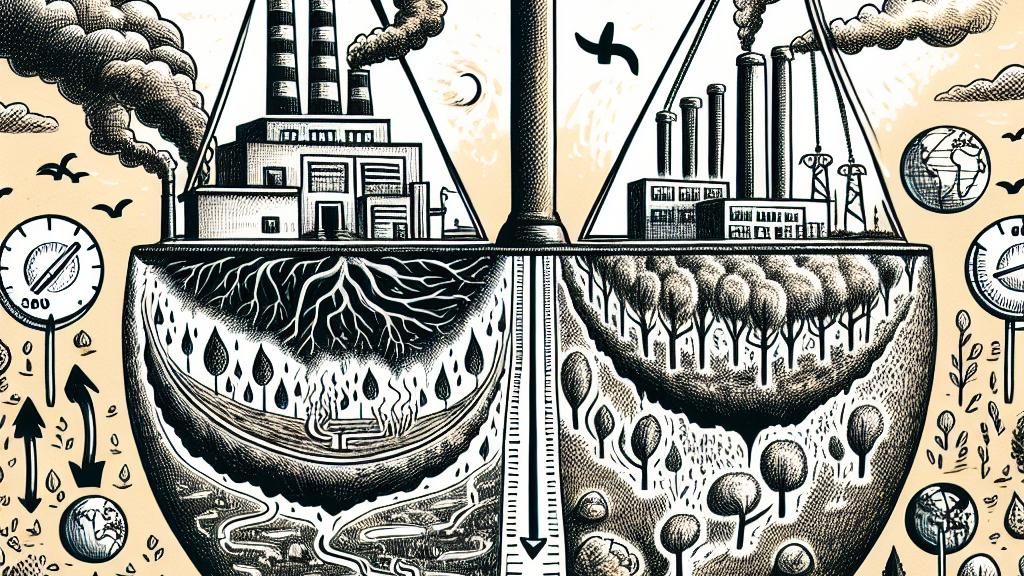Understanding Geological Net Zero and Carbon Sink Accounting
Overview
- Unveil the revolutionary concept of Geological Net Zero and its pivotal role in the climate crisis.
- Discover the crucial necessity of disaggregated accounting for our carbon sinks.
- Analyze global ambitions and the numerous challenges in the pursuit of net zero emissions.

What is Geological Net Zero?
Geological Net Zero represents a groundbreaking goal aimed at achieving a dynamic equilibrium where carbon dioxide emissions from fossil fuel usage are fully counterbalanced by carbon removals injected back into the Earth. Imagine if every carbon emitted through a power plant is thoughtfully matched by measures like underground carbon storage or reforestation endeavors! This perspective has become increasingly vital in discussions surrounding climate action under global accords like the Paris Agreement. We’re not merely looking to minimize emissions; instead, we must actively pursue ways to neutralize those that we can’t eliminate outright. By prioritizing this balance, we embark on a journey toward restoring Earth's climate stability, laying down a path for preserving our planet for generations to come.
The Challenge of Disaggregated Accounting
One of the most pressing hurdles in our quest for net zero is the implementation of disaggregated accounting for carbon sinks. This means distinguishing between various land management practices to ensure accuracy. For example, think about how we count the contributions of forests. A proactive reforestation initiative that plants trees is fundamentally different from natural forest regrowth, yet they might mistakenly be lumped together. This could lead to inflated claims about our carbon mitigation efforts. To tackle this, we need to embrace clear categorization—acknowledging not just the total carbon absorbed but also the specifics of each strategy. Such a grounded approach will empower us to craft more effective climate policies and enhance our accountability in the face of climate change.
Global Efforts and Future Directions
Around the world, nations are diving into their unique journeys toward net zero, and while some stories are inspiring, others present a sobering reality. The United Kingdom, for instance, is making headlines with ambitious targets: it aims to reduce its emissions by 68% by 2030, pushing forward with initiatives like widespread renewable energy adoption and bans on new gas cars. However, amid their achievements, substantial challenges loom large—ranging from the necessity of advanced technologies to the call for financial investments. The road to net zero is not a solitary journey; it thrives on international collaboration, innovative practices, and the unyielding commitment to transparent carbon accounting. Each step forward, whether big or small, builds momentum in a collective effort to ensure a sustainable future for all, reminding us that together, we can rise to the occasion and combat climate change effectively.

Loading...